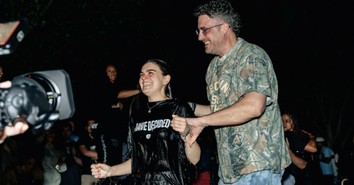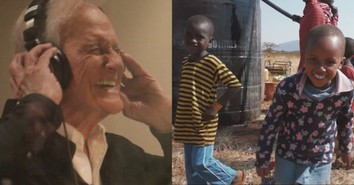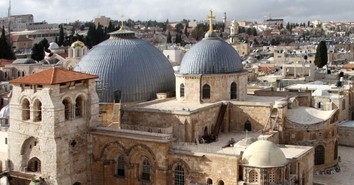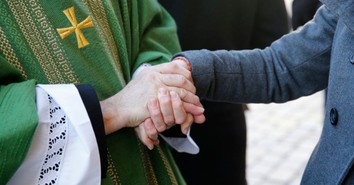Passover 2025: Celebrating Our Redemption While Still in Captivity
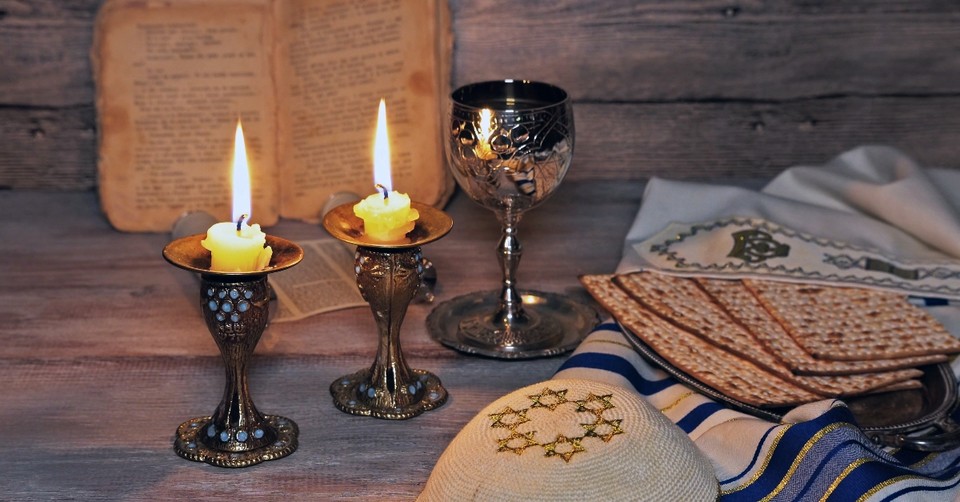
A Passover seder is a multi-sensory experience, including a variety of traditions related to and recounting the redemption of the Jewish people from slavery in Egypt some 3500 years ago to freedom, as recounted in the Book of Exodus. This week, Jews around the world will celebrate Passover and participate in elaborate Seder meals, during which we recount and thank God for redeeming us. We ask four questions relating to how we tell the story of the Exodus to four different kinds of children, drink four cups of wine, eat matza and other foods connected to and representative of our slavery and freedom, and more. One other tradition is that we also are to put ourselves in the shoes (or sandals) of Jewish slaves in Egypt, through these experiences and others, as if we were also slaves.
This year, again, the issue of experiencing slavery and redemption is more real than in recent years, with 59 hostages still suffering inhuman conditions in captivity by Hamas in Gaza, 24 of whom are believed to be alive. It’s been 553 days since they were taken captive: Israeli Jews and Arabs, and people from dozens of other nations.
For the hostages and their loved ones, 553 days may feel like 3500 years. Sadly, we don’t all go into this holiday with a feeling of complete redemption.
This year, thousands of Israeli families are grieving loved ones who have been killed in the past 18 months and who will not be home for Seder or ever again. Many are suffering physical injuries and trauma associated with the Hamas attack and massacre and the war that followed and is still raging.
Admittedly, it’s hard to be joyous and celebrating without at least an awareness of the loss and trauma others have had to experience or that we are suffering as a nation. Despite this, there are many blessings to celebrate, and we cannot ever lose sight of the divine miracles that we experienced as a people 3500 years ago. At probably the most traumatic time for Israel and the Jewish people, it's important to remember that even in the ghettos and concentration camps of Nazi Europe, Jews did anything possible to celebrate God’s miracles.
One thing is for sure, we are definitely in need of miracles now. This year, our celebration can even be a prayer with our whole bodies, knowing that no matter how difficult things may get, or be, God still has an eternal covenant with the Jewish people.
This year, we are celebrating our freedom as a people while dozens remain in captivity. Let it be a prayer that is swiftly answered and ALL the hostages will be released. There are many ways in which we actively remember and remind God that we need some help, bringing action to our spoken or silent prayers.
I’m reminded of my youth as a teen and young adult, as Jews around the world also undertook an active representation on behalf of persecuted and imprisoned Jews in the Soviet Union. As an act in solidarity with Soviet Jewry, many would leave an empty seat at their Seder meals, signifying that our freedom is not complete without their freedom, and indirectly at least beseeching God to fill up our empty seats with our brothers and sisters behind the Iron Curtain.
Nationally, whether we are physically setting empty seats or decorating our tables with yellow ribbons and flowers, all Israelis feel an empty space today. All the celebrations are necessary, but we also need to be grounded in our reality.
At the Passover Seder, there is another tradition to spill (or remove) 10 drops of wine from one’s cup while reciting the Ten Plagues. This is done as an expression of compassion that even though the Israelites were delivered from slavery, their freedom came at the cost of suffering for the Egyptians. By removing a drop of wine from a full cup, a symbol of joy and celebration, this acknowledges that we do not celebrate the suffering of others, even our enemies. It’s a small gesture of empathy and restraint.
As wine represents joy, we lessen our cup of joy to reflect that our redemption involved violence and loss. It reminds us that our happiness is tempered by the pain others endured, even if they were our oppressors.
As each of the Ten Plagues is recited aloud – Blood, Frogs, Lice, Wild Animals, Pestilence, Boils, Hail, Locust, Darkness, Death of the Firstborn - a drop of wine is removed from the cup onto a plate or napkin. This week, when we take a drop of wine from our full cups, indicating our joy, and spill it off, I’ll spill one extra drop for the hostages and suffering of thousands of Israelis. Despite the celebration, our joy is reduced.
As we celebrate the Festival of Freedom, let us unite in prayer, flooding God’s inbox that He will cause the softening of the hearts of Hamas and other genocidal jihadi terrorists and that all the hostages will be released. And let us put action into these prayers, sharing the urgency through all our personal connections and social media platforms and signing the petition to pressure Hamas to release the hostages unconditionally.
For thousands of years, we have ended our Seder with a song and prayer that next year we should have the privilege to celebrate in a rebuilt Jerusalem. Through our prayers and action, next year, all the hostages should be home, released, healing, and able to celebrate themselves.
*The opinions in this commentary do not necessarily reflect those of Crosswalk Headlines.
Photo Courtesy: ©iStock/Getty Images Plus/photovs
Published Date: April 11, 2025
The views expressed in this commentary do not necessarily reflect those of the Salem Web Network.

Jonathan Feldstein is president of the Genesis 123 Foundation (www,genesis123.co) whose mission is to build bridges between Jews and Christians and Christians with Israel. He was born and educated in the U.S. and immigrated to Israel in 2004. He is married and the father of six, and grandfather of four (so far).
Two sons and a son in law are currently serving in the IDF and have been involved in combat in Gaza and Lebanon since the October 7, 2023 Hamas massacre in Israel.
Jonathan is a leader working with and among Christian supporters of Israel, and shares experiences of living as an Orthodox Jew in Israel through his work, writing, and as host of the Inspiration from Zion podcast. Since the war began, he has authored more than 150 articles, and participated in a similar number of interviews, briefings, prayer events, and more.
Jonathan is working with Christian leaders all over the world to realize a true peace in Gaza, details of which can be found at www.SolutionforPeaceinGaza.com.
In 2023 he published the highly acclaimed book, Israel the Miracle (www.israelthemiracle.com), which makes a great gift for Chanukah and Christmas, and year round.
Originally published April 11, 2025.

